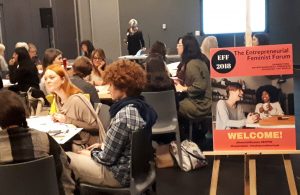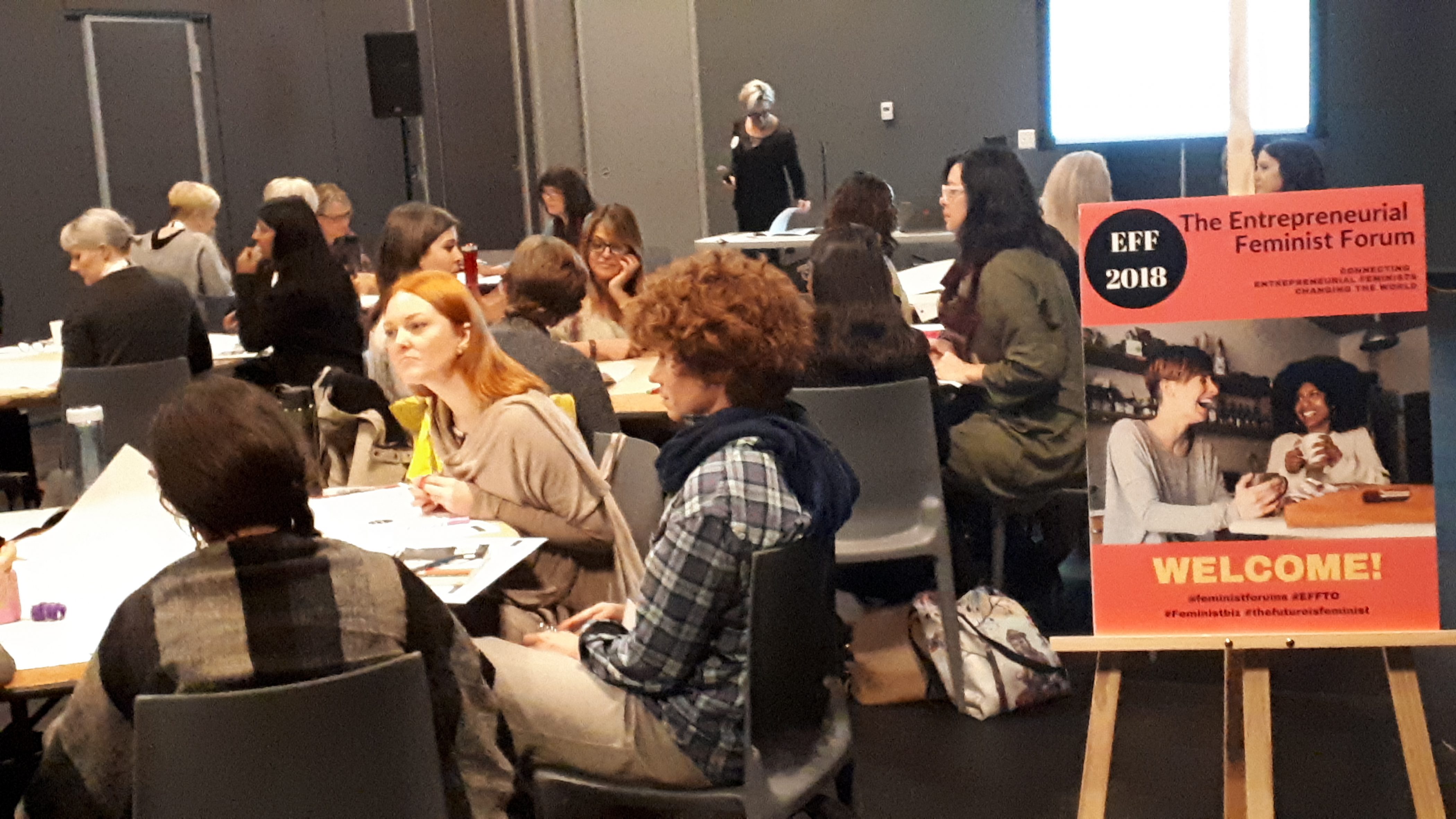
The federal government has awarded Ryerson University $9 million over three years to fund a Women’s Entrepreneurship Knowledge Hub (WEKH) to advance research into women’s entrepreneurship with the goal of increasing participation of women in the economy.
Mary Ng, Minister of Small Business and Export Promotion, who worked in the President’s Office at Ryerson University before becoming a Member of Parliament in the Liberal government, made the announcement this morning, saying WEKH will equip governments and the private sector “with the necessary information to better understand and assist women entrepreneurs in their efforts to start up, scale up and access new markets.”
Currently, only 16 percent of Canadian small and medium-sized businesses are women owned. By many estimates, advancing gender equality has the potential to add $150 billion to the Canadian economy by 2026. WEKH is expected to be a one-stop source of knowledge, data and best practices to help governments, organizations and the private sector develop better policies and strategies to grow women’s entrepreneurship.
Vicki Saunders, founder of SheEO and a partner in WEKH, hopes the investment will unleash the potential of women’s entrepreneurship. “We have an excellent business case in the women’s entrepreneurship area to show how investing in women will grow the Canadian economy. It’s very exciting to see that a university will take this information and upload research that will power better government policy.” She adds that “Ryerson has been a leading driver of entrepreneurship, innovation and education across the country.”
The Ryerson-led consortium was chosen over one competing bid led by University of Ottawa, which included some of Canada’s top thought leaders in the area of women’s entrepreneurship, notably Barbara Orser, a professor at University of Ottawa and co-author of Feminine Capital: Unlocking the Power of Women Entrepreneurs; Jennifer Jennings, Associate Director of the Centre for Entrepreneurship and Family Enterprise at University of Alberta’s School of Business; Sarah Kaplan, Director of the Institute for Gender and the Economy at Rotman School of Management at University of Toronto; Sandra Altner, CEO of the Women’s Enterprise Organizations of Canada; and the MaRS Institute, an innovation hub that helps entrepreneurs launch and grow ventures.
The Ryerson consortium includes eight regional hubs and universities, ten partners and 37 supporters.
The federal government has not lacked for reports making the case that supporting women’s entrepreneurship will strengthen the Canadian economy – more than 30 in the past 30 years, many industry sponsored. The central question now is will this direct federal government investment in university-led research produce relevant policy action and real results?
Says Barbara Orser, who coined the term Entrepreneurial Feminism, “It’s a unique opportunity to ensure a feminist and women-focussed perspective is shared and that only research of the highest quality is profiled. If not, there’s a risk of replicating the stereotypes and mythology of women’s entrepreneurship. Every incubator and accelerator and academic engaged in entrepreneurship should be speed dialled into this new source of information.”
Ryerson University’s Wendy Cukier, the Founder and Director of the Diversity Institute at the Ted Rogers School of Management, says they were thrilled to win the bid. “We don’t see this as an opportunity to do research. We see this as an opportunity to drive change, and the diversity institute has a strong track record in terms of using evidence and research to make things happen. We have pulled together a good network of partners including universities who will be able to grow and sustain (WEKH) beyond the initial funding.” She says that Ryerson will reach out to work with partners beyond the consortium. “The whole point is to aggregate research and information available. The whole point is to map and grow the entire ecosystem.”
Kelly Diels, a Vancouver-based feminist marketing consultant and writer, hopes there is a channel that loops the research hub back to women entrepreneurs so they can turn it into useful information with tools to use in their businesses. That way, “it’s not a report disappears into the ether or was a big project that didn’t actually move back to the people who need it.”
Jena Cameron, Manager of Women Entrepreneurship Policy at Innovation, Science and Economic Development Canada, says both applications were very strong and equally evaluated against the assessment grid that included things such as partnerships and sustainability. A lot of information on women’s entrepreneurship already exists, says Cameron, so a big part of the plan is to “package information (it) in a way that it becomes accessible to women business support organizations and women entrepreneurs themselves. Go through it and distil nuggets down into practical things that the ecosystem can use.”
Our initial take at LiisBeth? What, another study? This data better lead to change. It will benefit women entrepreneurs if the Ryerson-led consortium reaches out to the other side to tap into Canada’s leading feminist enterprise research and thinkers. Create an open door policy that lets everyone in so everyone can win, including community-based women’s entrepreneurship organizations and feminist entrepreneurs who are often off the mainstream radar.
https://www.liisbeth.com/2018/10/17/how-to-unlock-billions-of-unrealized-growth-led-by-entrepreneurial-women/
https://www.liisbeth.com/2018/10/19/minister-mary-ng-to-announce-a-new-20m-women-entrepreneurs-fund-today/




